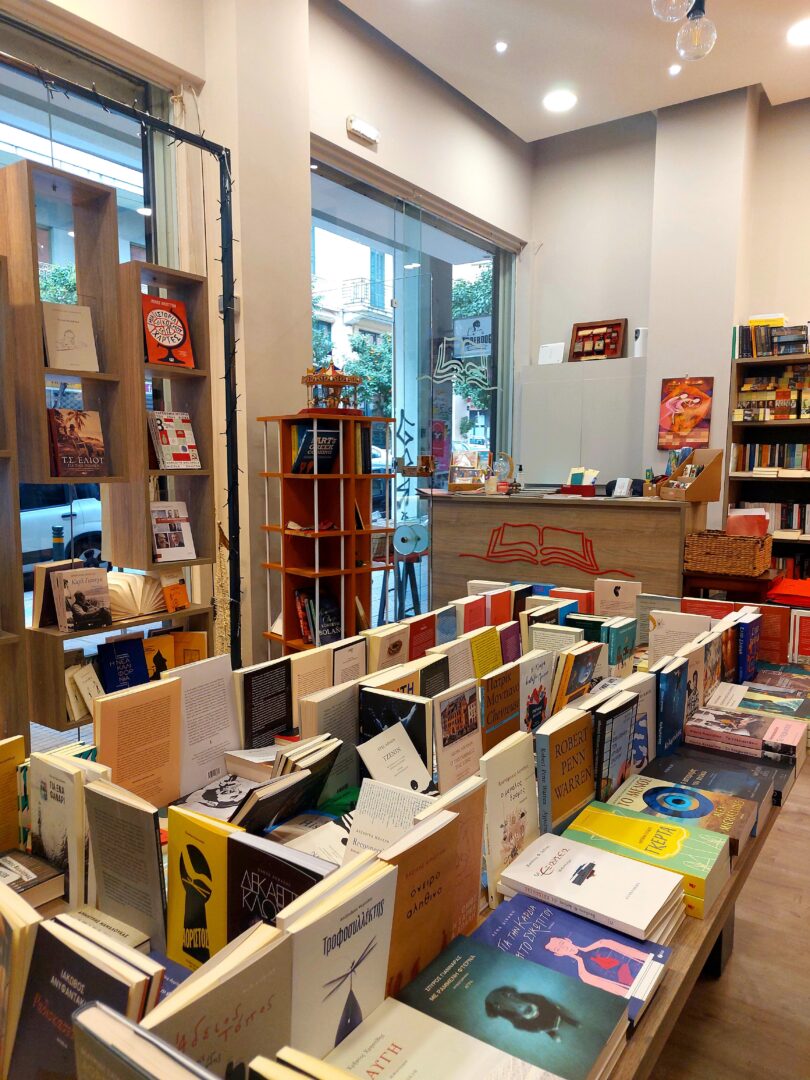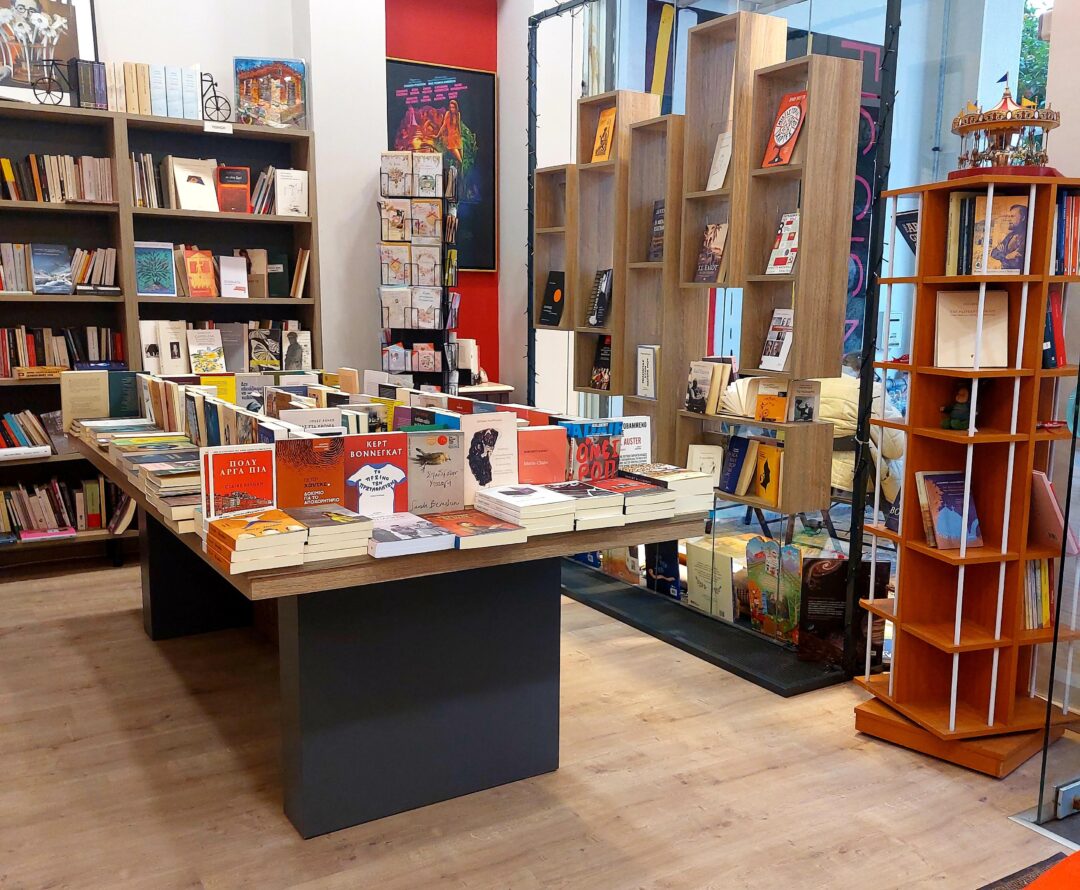Little bookstores constitute an integral part of our culture and our local communities. It’s the place where writers can connect with readers, where we discover new, unknown worlds, where children are captivated by the thrill of reading that can last a lifetime. They are the places that never stop inspiring us, uniting us and spreading the love for books.

Reading Greece* spoke to Agis Athanasiadis and Zozeta Androulaki, owners of Librofilo & Co about the role of little bookstores and their influence on reading preferences, as well as the challenges they are faced with and the prospects ahead.
Librofilo & Co is considered a point of reference for book lovers in Koukaki. Tell us a few things about this venture of yours.
Librofilo & Co was created on November 21 by Agis Athanasiadis and Zozeta Androulaki. The name came from the oldest bibliophile blog (www.librobilo.blogspot.com), which Agis started in 2006 and is still active in book reviews. Librofilo & Co is a little bookstore, which lays emphasis on quality books, through a careful selection of titles from all genres, while it also displays selected offers from publishing houses, second-hand books in excellent condition, as well as some foreign language titles concerning Greece.
How important is the role of little bookstores? How do they influence reading preferences?
Little bookstores are cradles of culture, as they are usually run by book connoisseurs who are willing to discuss and advise readers on a more personal level than an impersonal business. A quality little bookstore will shape and direct the reading choices of the people who opt for it and should thus have its own identity.
Which are the main challenges little bookstores face nowadays? How do you respond to these challenges?
There are everyday challenges that a little bookstore is faced with. At Librofilo & Co, we have chosen to proceed without depending on bank loans, creating unbearable debts, and we rely exclusively on book sales, which some months of the year are disappointing, since the market is small and traditionally people in our country do not read much. We are trying to meet the challenges by having a loyal customer base that supports us, in addition to our very active Reading Club along with hosting another. Our aim is to become known in the area as we are still very new here.
What about the prospects ahead?
Unfortunately, we live in a country where a small business, in field such as the book market, cannot make predictions about the future, nor be particularly optimistic with so many taxes and the known obstacles to entrepreneurship that have existed for quite some years now. We would like to open an e-shop, which we think will boost our sales; we are still quite new and still trying to establish ourselves in the market.

Would you say that the recent socio-economic crisis and the pandemic that followed has broken the ties connecting part of the readers with the choices and orientation of traditional publishers, creating an aesthetic and intellectual space that may certainly grow?
It’s mostly the pandemic that has benefited the book and not so much the decade-long economic crisis. The pandemic brought people to the book; people remembered or discovered that reading a book is one of the greatest pleasures. This inevitably brought to the surface some new, quite notable, publishing efforts, that offer much more interesting titles than the traditional publishers, some of which were particularly affected by the financial crisis due to their size. So yes, a lot of people have discovered smaller publishers and trust them in their choices.
In the era of online communication, how have the social media influenced what people choose to read? How have reading preferences changed/evolved during the years?
The internet has literally changed everything. The advertising of books takes place there and we have witnessed authors or books that have made a career or a name through social networks. The evolution of applications (Instagram, tiktok, facebook, x) mainly affects younger readers who are active participants and create reading trends or commercial successes that are often unexpected. The older method of “word of mouth” (which was also the safest in the field of book sales) has become outmoded and more and more customers are buying books influenced by the flood of images and reviews surrounding them. We believe that this trend will last for several years and will probably completely replace old traditional practices.
*Interview by Athina Rossoglou
TAGS: LITERATURE & BOOKS | READING GREECE













